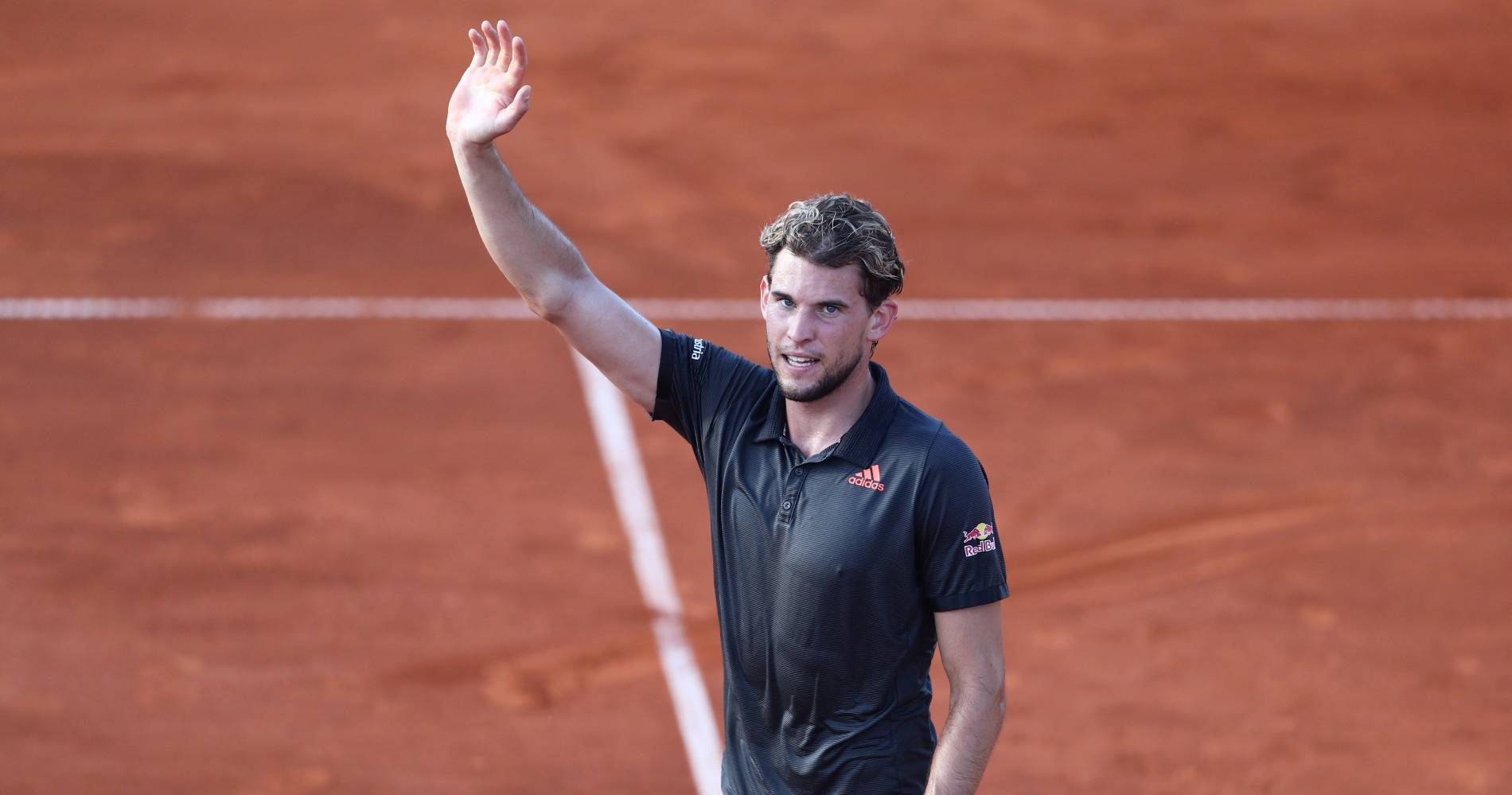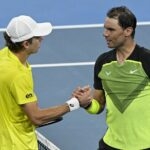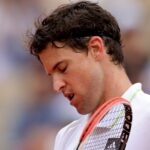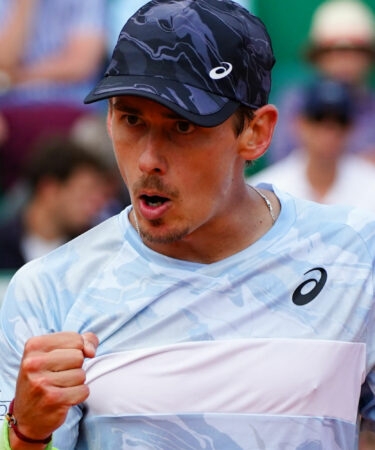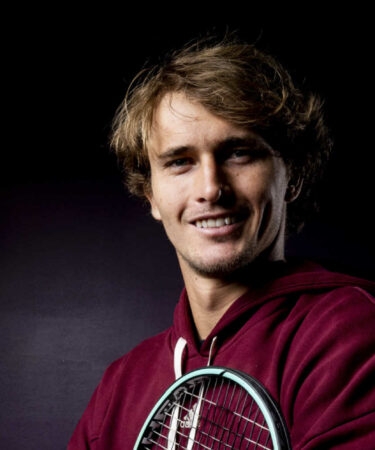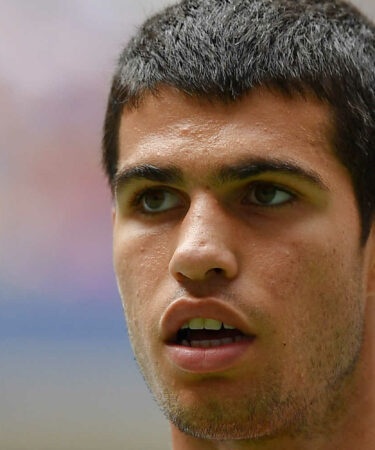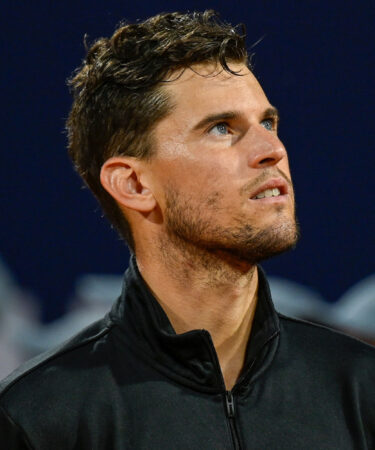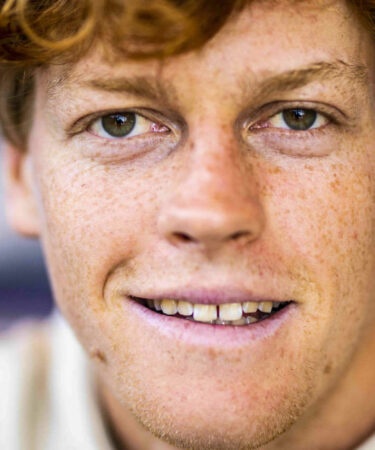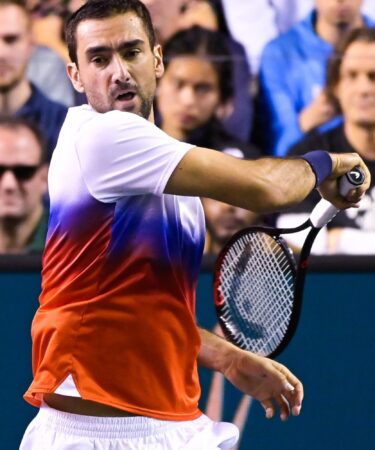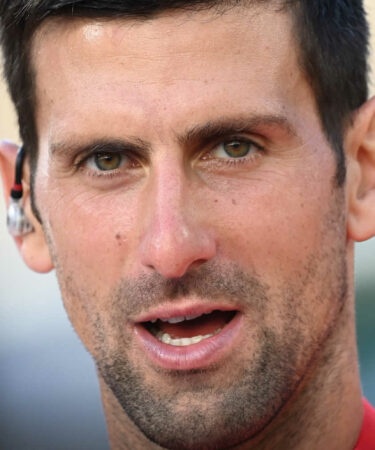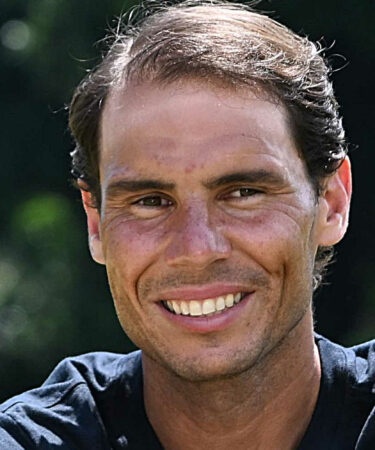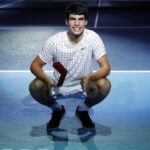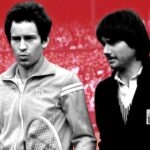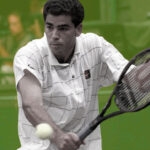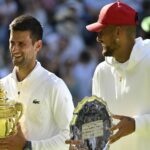Dominic Thiem, the retirement interview (part 2): “I thought winning a Grand Slam would change my life forever. It didn’t”
In the second part of our exclusive interview made in Vienna with Dominic Thiem, the Austrian tells Tennis Majors about the impact of his US Open triumph, his wrist injury and what it was like to take on Roger Federer, Rafael Nadal and Novak Djokovic
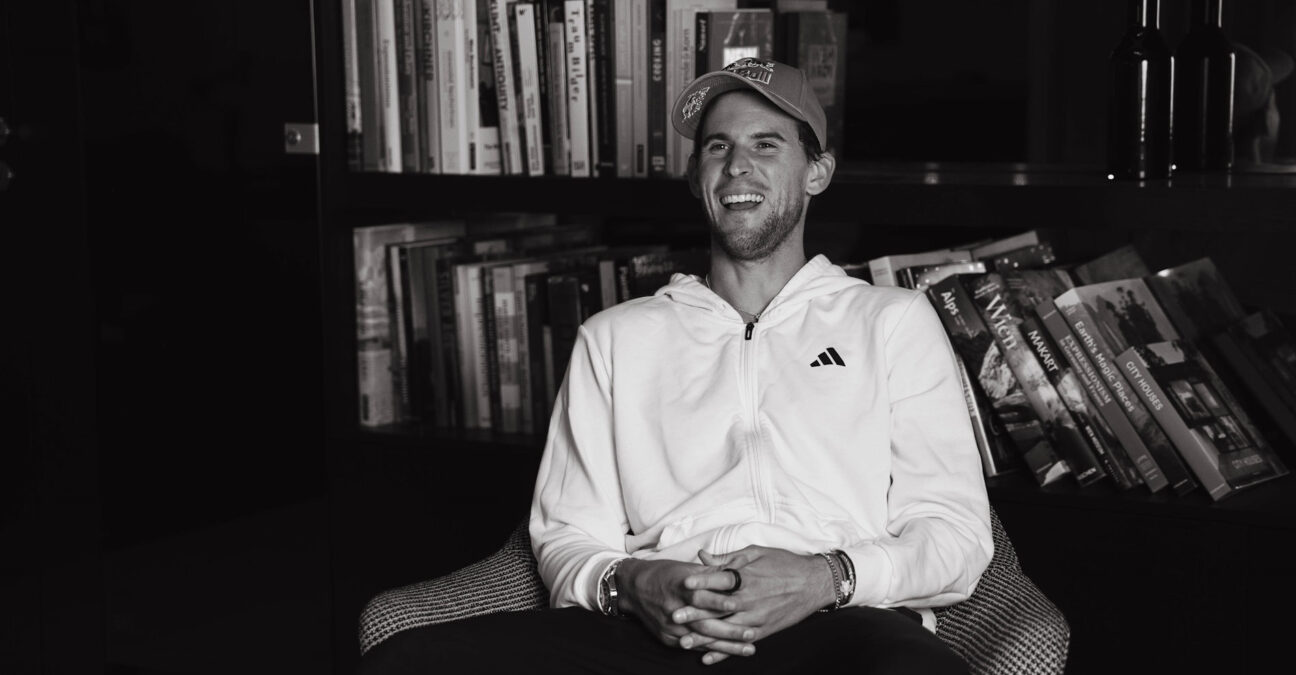 © Tristan Lapierre for Tennis Majors / UTS
© Tristan Lapierre for Tennis Majors / UTS
Dominic, let’s have a look at your whole tennis journey, after the first part of the interview. If we think about the best moments, your Grand Slam title at the 2020 US Open comes first to our mind. Is it the same for you?
Dominic Thiem: Yes. I mean, this final was very tense. To win at least one Grand Slam tournament was a huge relief. A feeling of freedom. I had lost three Grand Slam finals (2017 and 2018 Roland-Garros, 2020 Australian Open). I had experienced how difficult it is to get there. And, you never know if it’s your last chance or not. For the first time it was not against Novak or Rafa. Sasha (Zverev) was such a difficult opponent but there was quite a lot of pressure from the outside, people saying that I’m a favourite in this final, but I didn’t see it that way. I don’t really like to play against Zverev because of his huge serve and because of his amazing backhand. I think his game style doesn’t really suit me so well. And I knew all of this.
You were very close to losing this final…
Dominic Thiem: It was really, really tight in this match. I played very bad in the first two sets. He was playing, like, in a flow. I just tried to stay in the fight, just to release the hand a bit, which I did, luckily, in the third set and then once it came to the to the fifth set, it was only about small details (2–6, 4–6, 6–4, 6–3, 7–6). We wanted the title so much and we were both on our physical limits, cramping, just some very small percentage points deciding those kind of matches. I had a little bit of luck, maybe. And this was luckily on my side on that day. And then, I really won that final set tiebreak and the first thought was just a big relief.
You just said there was a lot of tension because you were considered one of the favorites expected to win. When did this extreme tension start and how did you finally relax – if you did?
Dominic Thiem: Hours and even days before the match was full tension. Luckily after two sets, I was able to get into the match but still not fully releasing. I was able to fight and it was the main thing. Able to run for every ball. Before that, the tension prevented me from moving well.
Did the fact that you played the tournament behind closed doors change something?
Dominic Thiem: Yes. The circumstances were very unusual. And, honestly, it was tough to walk into the night session in Arthur Ashe Stadium, which is electric normally with 23,000 people cheering you on, with just I don’t know, 20 people in the stadium and completely silent. So this was very difficult. And, I guess it was not helping both of us in the final because of course, you get a lot of energy from the crowd. All this energy was missing. I think that’s also a reason why this match was very tense.
it was not helping both of us in the 2020 US OPEN final because you get a lot of energy from the crowd
Dominic Thiem
What are your memories of the run to the final? It was not an easy draw. Cilic, De Minaur, Medvedev.… What comes to your mind?
Dominic Thiem: I had to survive some very tricky situations and I almost had to go to a fifth set against Cilic (6-2 6-2 3-6 6-3). But this match gave me quite a boost because, afterwards I played three great matches against Felix Auger-Aliassime, against Alex de Minaur, and then maybe one of or maybe the best match and the closest match, I won in straights against Daniil, with two tiebreaks. The road was not easy, but I was playing really well. And, I think deep inside me, this also increased the pressure for the final. Because Sasha was not going that easy through his matches. Carreño Busta led two sets zero in semis. Maybe somehow I said ‘OK, maybe this is for me. If I play well I really can win the tournament’.
I thought A SLAM TITLE would change my lifee forever. it’s an illusion
Dominic Thiem
What did it change for you to be a Slam winner?
Dominic Thiem: Honestly, I think back then I took it way too importantly for my career and for my life. Even, I thought that it would make me happy forever, and would change my life forever. But, of course, it’s not like that. It’s an illusion. Basically, nothing changed. And honestly, in 20 years, hopefully if we still are here, nobody will really be interested if I’m a slam champion or not. Back then, I was not thinking like that. I really thought: ‘OK, if I’m not going to win a slam in my career, my career is not great and I always will have some doubts’. It was not an easy situation. Of course, it’s very nice to have the title, to have the trophy at home, but in the end it’s still only a trophy and it shouldn’t make a big difference in life. That’s how I see it now.
Did you realise that quickly after the win?
Dominic Thiem: Yeah, it was pretty, pretty quick. I suddenly realised that it wouldn’t make me happy forever necessarily. After like three or four months, things got back to normal and it was not the way I expected. It was a very interesting situation, a challenging experience as well. But I’m very happy that I got to make it.
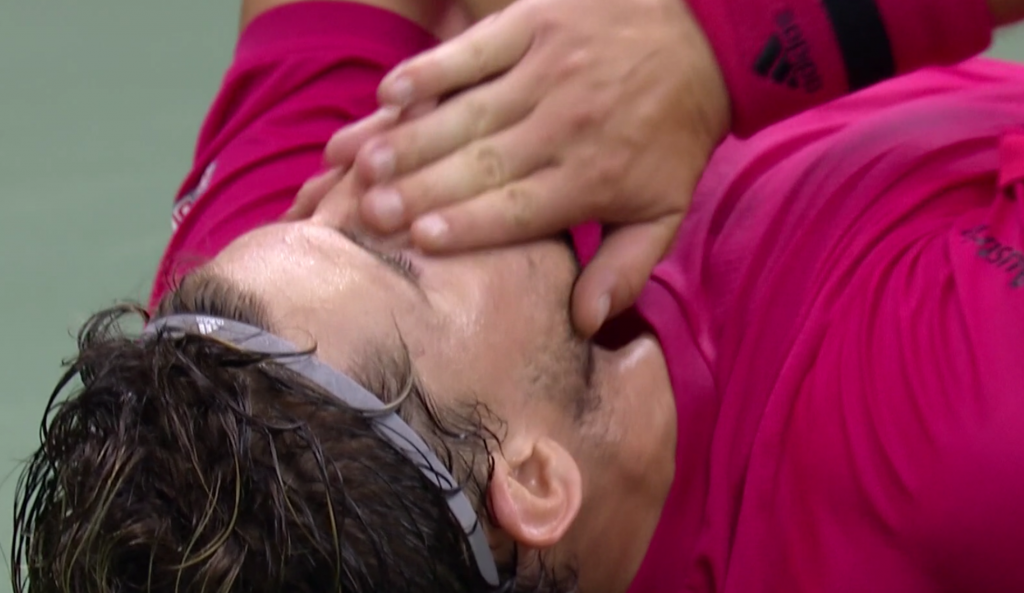
– Le moment clé : À 5-3 contre lui dans le dernier set, Thiem a débreaké son adversaire et a fini par remporter son premier Grand Chelem.
– La décla : “J’ai accompli le but de ma vie, un rêve que j’ai depuis de nombreuses années, depuis que je suis enfant quand j’ai commencé à jouer.” – Dominic Thiem
Do you think this is understandable for players who dream about it and didn’t achieve it yet and maybe will never achieve it?
Dominic Thiem: I don’t know if they can understand what I’m saying, but I think for long-term happiness and for a long term life, it’s better if you understand it that way. I was 5-3 down in the fifth set. So it could have easily happened that I never won a major trophy. I really think I would see it the same now. What’s really important is to really give it your all and to try the best in every match. Enjoy the process. Your life really shouldn’t depend on two or three points here or there. If you gave it your all, what more could you do?
At that stage of your career, 2020, you were in a period, starting probably in 2017, when you were the only guy, together with Andy Murray, able to consistently challenge the Big 3. You defeated Novak, Rafa and Federer a total of 16 times! How did you understand that it was your ‘new normal’?
Dominic Thiem: I think 2017, I won against Rafa in Rome and against Novak at Roland-Garros. It was two amazing wins. There I realised that if I play my best tennis, I really have a chance and it doesn’t really matter the surface or the tournament. That was key, because you really have to go with the belief to win on court against those legends. And I think now it’s the same: if you go on court against Carlos (Alcaraz) or against Jannik (Sinner), the only way to have a chance is to go on court with the belief.
For every player, the crucial part is to be able to think: ‘if I’m playing my best level, it doesn’t matter what’s the opponent is doing, I can still beat them’. The only match actually where that didn’t work was the French Open final in 2019 against Rafa, because I really have the feeling that I played my best tennis there. And he still could switch up a gear. My best tennis was not enough. I think you have to accept that. It’s pretty easy to accept because there’s nothing more I could do. This was the only major (where) this belief was not working. But in all the other matches, it was working. I think that’s why I was able to collect quite a lot of wins against him.
What were your thoughts at the end of the second set of that final? He won the first 6-3 ; you won the second 7-5. And then he won 6-1, 6-1.
Dominic Thiem: Honestly, for me, the first set that I lost was better than the second set that I won. The first set was amazing for me. He was a break up. I was playing such a high level, but it was a shock for me that I still lost it 6-3.
In the second set, I was serving so well and all the games were exactly going my way. He gave me some presents at 6-5 and I closed out the second set. But the feeling was still not that great because I knew that the first set was even better. In the second set, everything was going my way, and with all Rafa’s experience, you know that it’s not going to continue like that.
And that’s how it happened. I think that in the third and the fourth set, they were still okay, but he was playing on such a high level, I maybe dropped one level down and then it was a pretty brutal score, 6-1, 6-1.
I’m proud i have a good head to head record against the big three
Dominic Thiem
I will give you some stats about this period, and you tell me which was the most impressive and meaningful for you. Against Novak, you led 5-2 head to head, starting in 2017. From 2018, you defeated Nadal four times on clay. You led 5-2 against Roger, including a win on grass.
Dominic Thiem: This makes me proud, honestly. All those facts are really meaningful. Above all, every match against them were a real, real present. I’ll remember forever. Of course the victories are really nice, but I’m overall very proud that I have a good head to head against all of them. One of the most important matches to me and the one I remember also a lot, is a defeat against Rafa, actually, at the 2018 US Open, lost 7-6 in the fifth. And a loss 7-5 against Novak in the Australian Open final in 2020. I think this tournament in general was the best level I’ve played, if you see it as a whole tournament. So it’s not only the stats or the victories, it’s really all the matches against them that gives me a really good feeling and very nice memories.
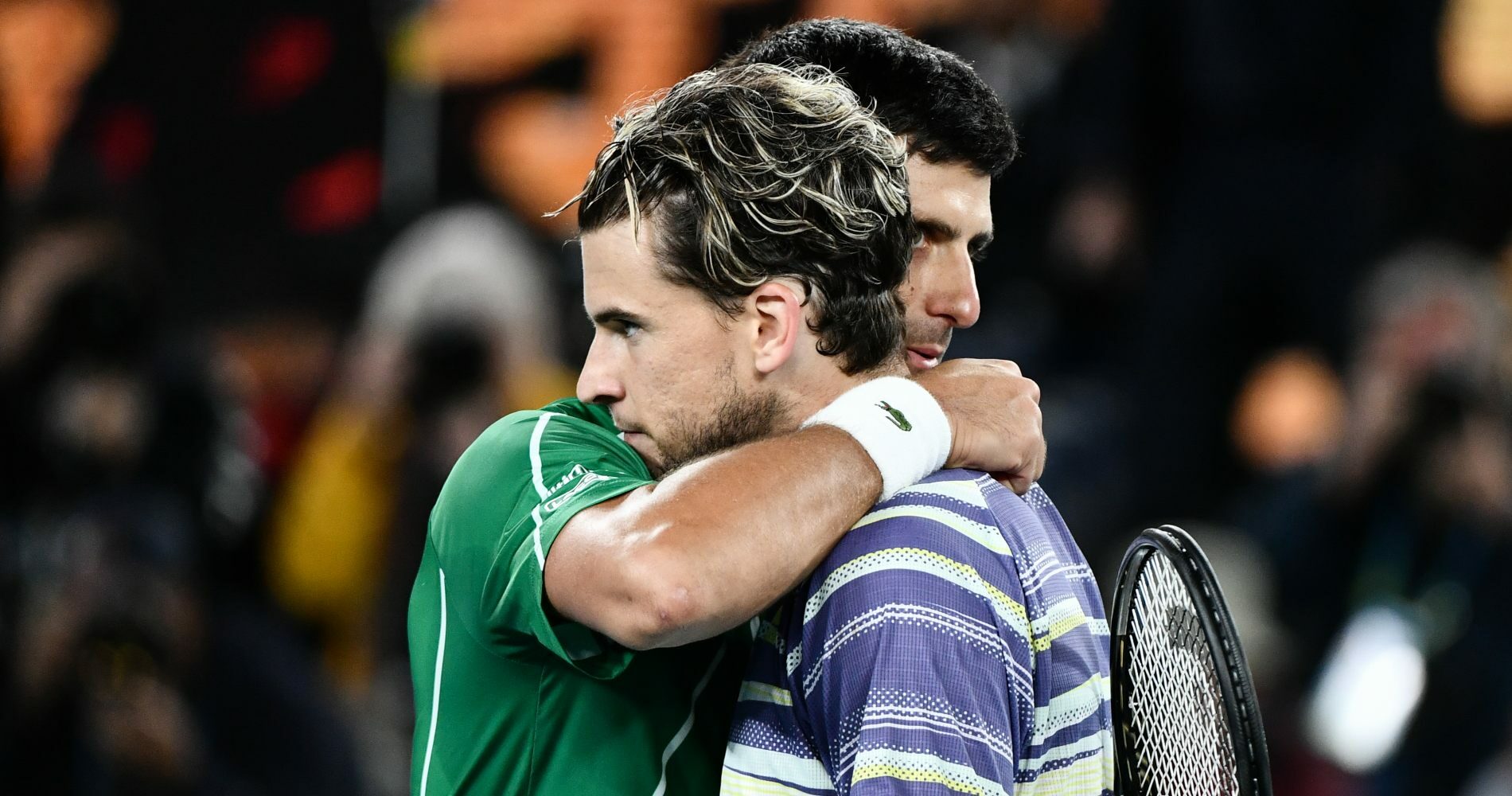
In your speech after the Australian Open final, you highlighted that it was a privilege to play at the same time as Federer, Nadal and Djokovic. We all understand what you mean, but on the other hand, people know it was the worst period to try to win titles. Without them, maybe you would have five or more Grand Slams – there are some people don’t believe in this ‘privilege’.
Dominic Thiem: Yes, I understand people who are thinking that way, but, to me the situation is quite easy. I feel really lucky and privileged to have played against them because they are three of the greatest athletes of all time. This is one part.
And the second part is that I think it was not easier before, and it didn’t get easier after that. A lot of people said: ‘once they are gone, it’s going to be way easier for everybody in my generation, Daniil and Sasha and Stefanos and all those players. Then what happens? Carlos came up and Jannik came up. And now you have basically a similar situation if you want to win a big title. You have to beat both of them. They won all four slams in 2024.
So, the situation didn’t really change. I think it’s going to be the same in, I don’t know, 15 years or something. People will say: ‘OK, now, if Carlos, if Jannik, maybe the new guys coming up, if they retire, it’s going to be way easier’. But again, new guys are going to come. It has been always like that in tennis history. I think it will always be.
You have said that in the process, you suffered a lot because you worked a lot. If you remember these years, what’s the balance between, pleasure, pleasure to play, pleasure to win ; and the pain you had to endure to maintain this level?
Dominic Thiem: It’s a bit tricky because most of the times it’s hard work. It’s suffering. It’s staying on court for hours, staying in the gym for hours, enduring tough defeats where you suffer a lot. Of course there are victories, but sometimes also epic matches, which you lose. But if you win the tournament, if you win an epic match or if you even play an epic match, which you might lose at the end, this good feeling pays for all the bad feelings. That’s how I felt it in my in my best years.
And in the opposite, the feeling I had these two, three latest years was that the suffering and the tough moments were too numerous compared to the happy feelings and these big enjoyments they got less and less. And, that’s why I think it’s also a good call to retire because, once there is no balance anymore, the choice is not there anymore.
Most of the times it’s hard work. It’s suffering.
Dominic Thiem
Are you saying mental or physical pain is more than the pleasure of the wins?
Dominic Thiem: Both, maybe. Yeah, both mental and physical pain. 100 percent. Physically, of course. It’s very demanding. Everything. But also mentally, to get up early every day with no other perspective than giving everything again. These are moments which are very, very demanding. As long as you have the balance, they’re fine. But once the balance is not there anymore, those moments almost become impossible to take.
How did you realise that the balance started to be unbalanced and that it would lead you to retirement? Because if we think about 2020, after the win at the US Open, the end of the season was still good, reaching the final at the ATP Finals. Then 2021 starts to be tough in terms of results and you stop to heal your wrist.
Dominic Thiem: Yeah, after the 2020 US Open, I continued to play very well. The French Open quarter-finals (played after the US Open that year due to Covid-19) were OK also. After that, I think I did a mistake. I should have taken some time off because I was not ready to go to Australia and to get back on the Tour. I was mentally and physically exhausted. Exhausted is the word.
To be on Tour, you need to be ready. And I was not ready to play well and to deliver results. I was not in that kind of shape. But I still went. At some point in the 2021 season I really felt that the fire, the motivation, was coming back and, exactly at that time, the wrist injury happened.
Unfortunately, the wrist was never the same after that, not stable or flexible, especially on the forehand. I never found the same feeling. But it took me a while to accept that I was always chasing this old feeling. I was always still believing that one day, I’m going to be back on court with the feeling and be back on top. But then one day, I had to accept that it’s not that way.
My career was unbelievable anyway. Way more than I ever expected. But now I’m not the same player anymore and the wrist is not the same anymore. I could have continued, like, maybe being top 50 or top 100. But you know, I never enjoyed the lifestyle of a tennis player, really. If the process would play, I would really want to be on the top and have the chance to win the biggest titles. But I prefer to start a new chapter. I prefer that to chasing the top 100. It’s not worth it for me. And the point is that the risk is not the same. So you can have the same shots.
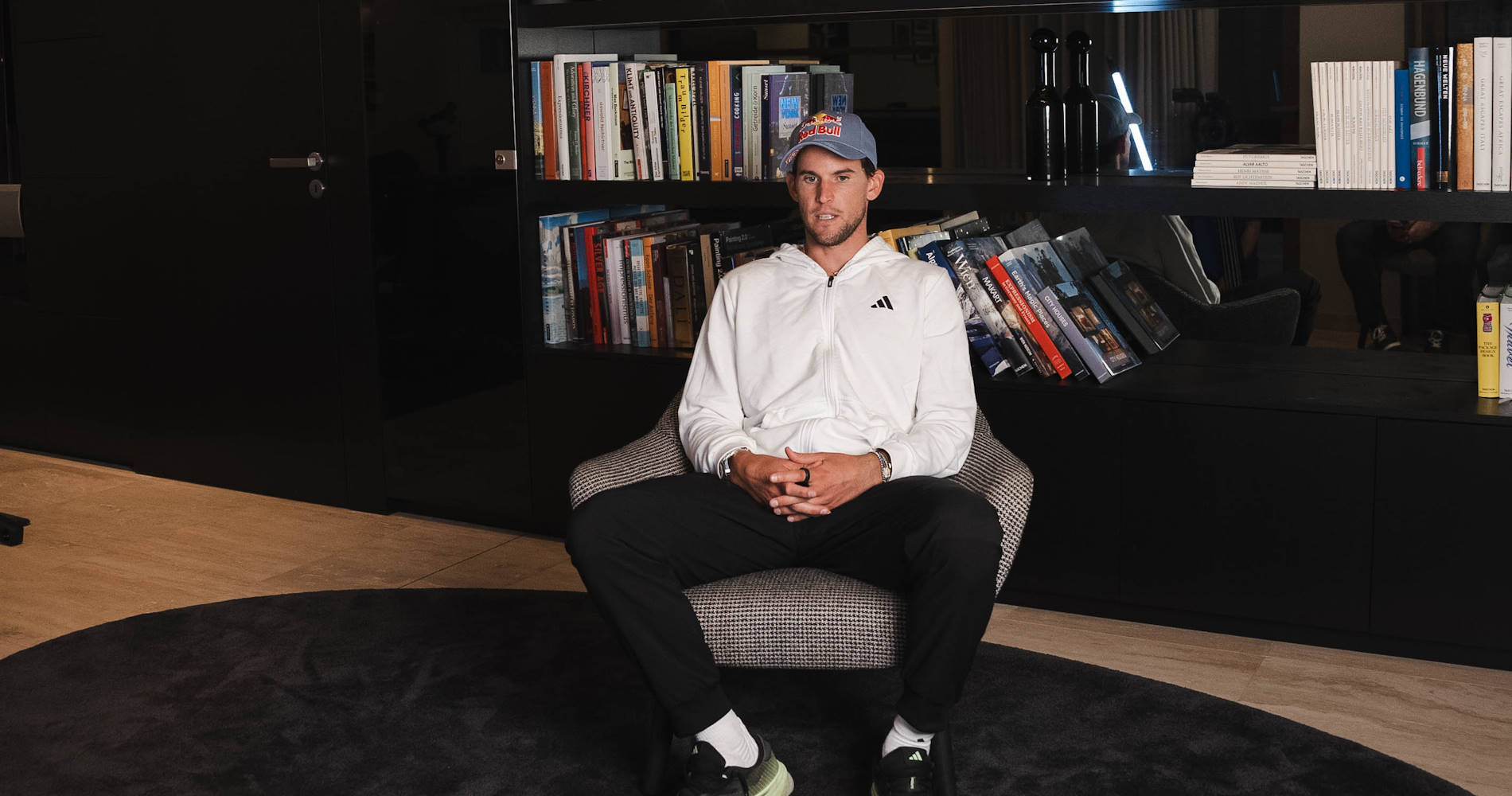
Is your wrist actually injured, or painful?
Dominic Thiem: Yes. Sometimes I have pain. Sometimes it’s a bit stiff, but that’s not the main problem. I would say the main problem is that the feeling, the acceleration is just not there anymore. One big part of why I could hurt all the players so much was because my shots had a bit of extra spin, a bit of extra pace. And of course, the wrist was a very important part of that. And I lost this little extra on my shots. And I’m not the biggest server. I’m not the guy who is like, an unbelievable talent like Nick (Kyrgios), who’s playing drop shots like this and that. I need my regular shots to be at 100 percent. And if they’re not, then I’m just not a world class player anymore.
i gave it my all, but i don’t think it was too much
Dominic Thiem
Do you think that, at some point, you gave 120 percent to be a Grand Slam champion, and that’s the price to pay, and maybe the price is too high?
Dominic Thiem: I was giving it all for sure. I was taking a lot out of my body for sure. And that’s why I also injured my wrist at one point because the wrist had to take so many shots from a very early age on. And, at one point before the surgery, it was almost clear that it’s going to break down. There was a lot of (stress on) my wrist, but also, of course, on my whole body, and also for sure, of my mental capacity. But that cannot mean (it was) too much. I would not say too much because any other way would not have worked to get on the top, to get close to Grand Slam titles and finally make it. So, I cannot say that it was too much.
How did you build your game identity? What you bring on the court.
Dominic Thiem: It was a long process because I have a pretty defensive character in general, so I had to change that on court because nowadays, in professional tennis, you can only win if you really go for the shots and hit a lot of winners. The trademark shot became the backhand. Definitely backhand down the line. There were fewer and fewer players and Grand Slam winners with a one-handed backhand. Hopefully it won’t (stay that way) too much.
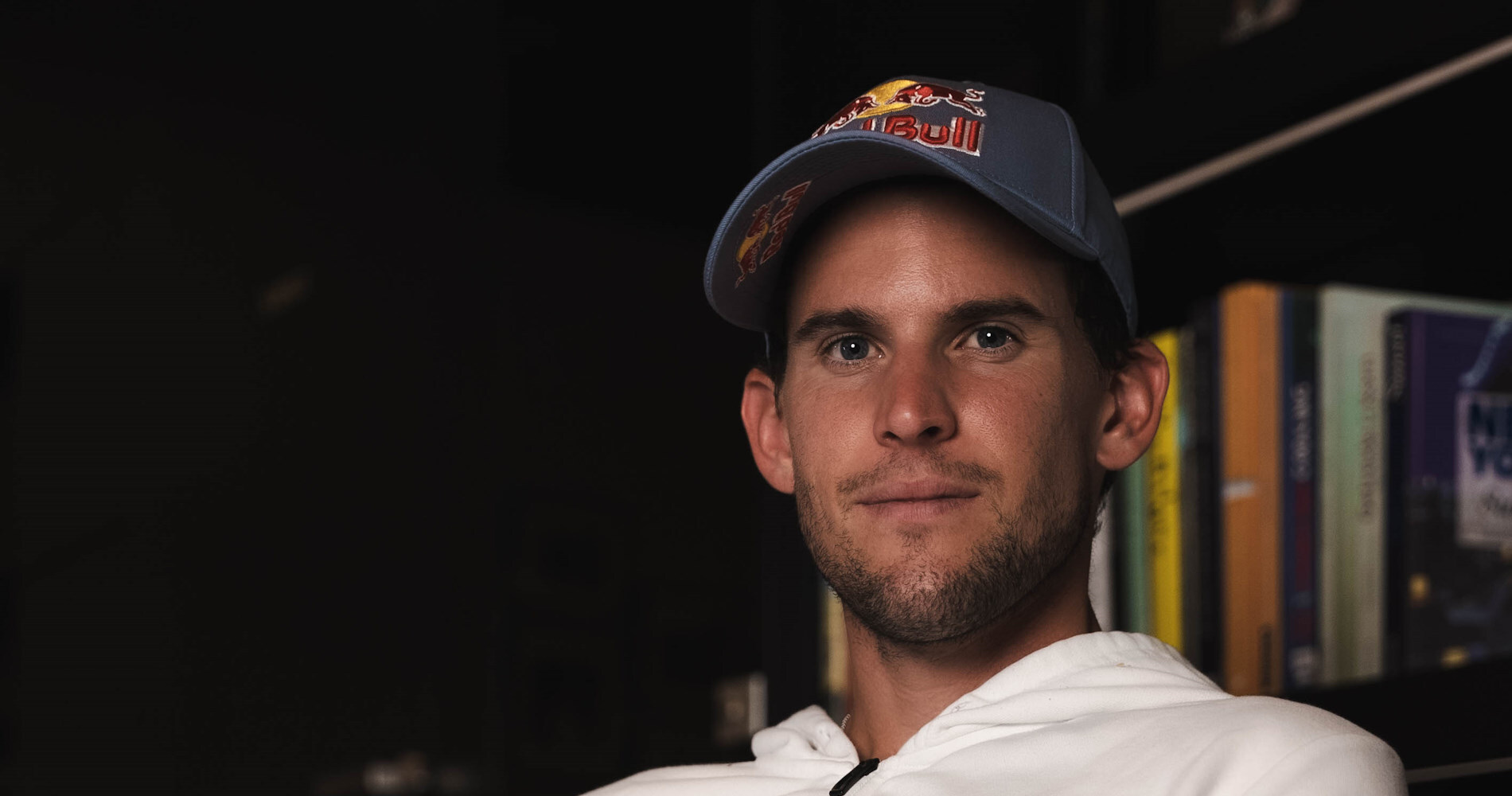
How would you like to be remembered by people who saw you play?
Dominic Thiem: I would like to be remembered, first of all, as a fair and a nice player, but also as a player (who was) enjoyable to watch. That’s very important. But the most important to me is that hopefully I brought many kids and many young people to the sport, especially in my case. Sport is such a huge and important part of the world, and especially in tough days, like now.
How did you choose the last two tournaments you will play; UTS Frankfurt and ATP 500 Vienna. We can have a clue, of course, but how did this programme come about?
Dominic Thiem: I decided to retire in March. And then to retire in Vienna. This was always clear that if one day I’m going to be a professional player – and of course to retire one day – it’s going to be in Vienna because it’s end of October, so the end of the season, it’s in front of my own fans. Austrian players are lucky to be able to do that, like the French, who have Paris Bercy. And last year when I saw there was a UTS in Frankfurt, I knew I wanted to play there. The schedule was done in March. I have a very good relationship with Germany. I think I have very good connections to German fans as well. I won in Stuttgart, I played a final in Munich. I always enjoyed to play there a lot. Obviously it’s the big neighbour of Austria. Easy decisions, in the end.
We can expect emotional moments. How will you handle it?
Dominic Thiem: I’m not the type who cries. There are just no tears coming. I don’t know why, but it’s me. If there are big emotions coming up, they’re connected to pictures and to memories from the tournaments especially. In Vienna it’s going to be my 14th time there. I’ve played the tournament many, many times, more times than any other tournament. So I guess there, when I’m going to play my last points, all those pictures from the last 14 years will come up.


